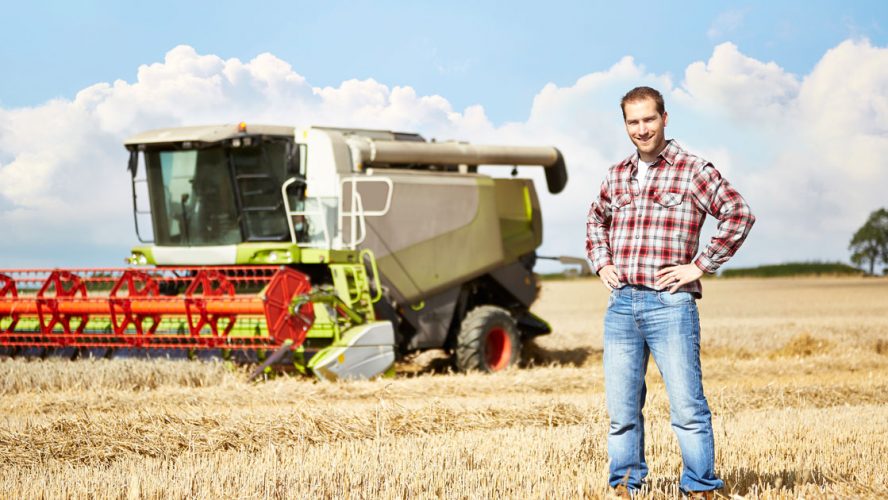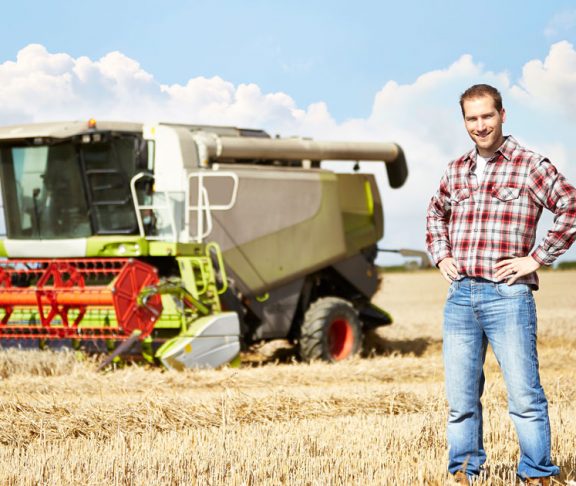
Caroline Mason
Head of Agriculture, Co-op
Retailers must champion the UK farming industry, and they can do so in a number of ways, says one supermarket executive. That includes making a commitment to sourcing British produce.
British farmers are passionate about the food they produce and keen to ensure they safeguard its reputation for quality. Yet these are uncertain times for the sector, says Caroline Mason, Head of Agriculture at the Co-op. So it’s crucial that retailers commit to supporting farmers in any way they can, but particularly by sourcing own-brand British meat, produce, dairy products, plants and flowers from the UK.
“In this country, the food that we produce, and the standards to which we produce it, are globally leading,” she says. “British farmers worry about those standards being compromised. The more we can feed this nation with home-produced food, the better it is for our economy and the health and wellbeing of society. A viable agricultural sector is essential to feed our growing population. We really put our money where our mouth is. In 2017, we switched all of our fresh meat to 100% British.
The hard work that our farmers put into growing and producing has a place in the domestic market.
“It was a move that was received incredibly positively by the farming fraternity, as you would expect. It was a huge show of commitment from us, to them.”
“But it also means the hard work that our farmers put into growing and producing has a place in the domestic market.” Retailers have to stand firm and commit to supporting British, insists Mason — but so do consumers. Thankfully, UK consumers seem to be taking the ‘buy British’ message on board. “Increasingly, they’re asking questions about their own diet and wanting to know where their food comes from,” says Mason. “They’re also thinking about their carbon footprints. As retailers, we can’t ignore those concerns.”
Strategies to safeguard British farming
The problem, of course, is that we’re all used to getting the food we want, whenever we want it. So, how realistic is it to only buy, say, British fruit and veg? “We have to remember that there’s a solid six months of the year in this country where we can grow home-produced produce — apart from bananas, citrus fruit and some of the more exotic varieties,” says Mason.
Retailers can help protect British farming in other ways, says Mason, for example the company has extended the seasons of 15 different fruit and veg produce lines in the past two years as a result of long-term contracts with growers.
Investing in the growers and producers of the future
Retailers can also champion the industry by supporting educational activities about agriculture in schools, putting their name to events such as LEAF’s Open Farm Sunday, and even offering farmers business and development courses. “For example, we’re running programmes to teach young farmers wider business skills, from lean management to succession planning,” says Mason. “The idea is to invest in the next farming generation because they’re the growers and producers of the future who will drive the industry forward. They need to know about succession planning, business resilience, supply chain integration and also mental health which we know can be a huge issue for those working in agriculture.”
Andy Venables from Macclesfield was one of the organisations cohort of the Farming Pioneers programme. He said “it has enabled me to make changes within the business to create a more efficient, forward thinking business.[The programme is] upskilling today’s generation of farmers, but also futureproofing agriculture and breathing new life into a profession that many, certainly our consumers, may not always understand.”
But farmers — who have always been very good at working hard, quietly, behind-the-scenes — also have to help themselves by being more vocal about what they do. Thankfully, this is beginning to happen. “Farmers are recognising that it’s okay to be more visible through, for example, social media platforms,” says Mason. “Many are talking to the public about their work and how proud they are to be part of the industry.”
The future for British farming could be bright, insists Mason. “With the right leadership and with collaboration from across the industry, we have the ability to set this country up for generations and produce globally leading, high quality, affordable, sustainable, safe food.” she says. “With the right strategies, retailers can make a difference and drive change. And that’s exciting.”
Since the Co-op’s inception in 1844 it has been sourcing goods from right across the UK and today, more than ever, it continues to be a major supporter of British agriculture. In 2017 it went further than any other retailer by switching all of its own-brand fresh meat to 100% British as part of a £2.5bn investment programme dedicated to sourcing homegrown meat, produce and dairy. More information can be found in the Co-op’s Best of British Report: coop.co.uk/our-suppliers/farmers


